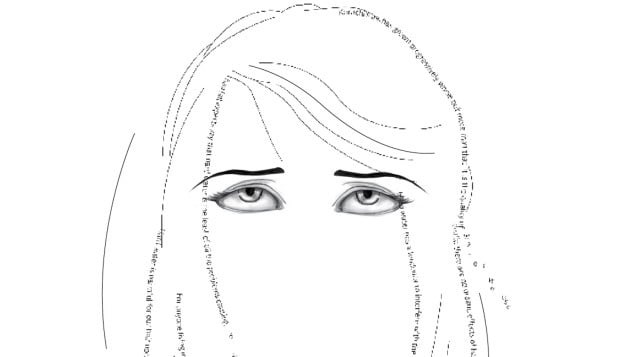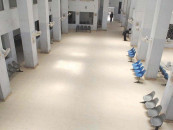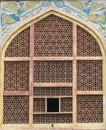Our chemical romance

Young women in Karachi are, however, not necessarily to blame for less than lucious advertisement-worthy hair. “Back then, our mothers and grandmothers had completely different dietary habits and environmental conditions,” points out Dr Najjia Ashraf, a dermatologist and cosmetologist who runs a skin clinic at Zamzama Boulevard. Karachi’s air has grown progressively worse but more than that, it is the quality of water we use to wash our hair that is contributing to the problem. Thousands of houses have no choice but to use this type of water that is supplied by tankers across the city.
“The water provided to us through tankers usually tastes salty and smells like chlorine and fungus,” says Haya Shah, who lives in an apartment near Sea View. She feels that constantly using this water has noticeably damaged the texture of her hair.
Dermatologists and other experts have different opinions on whether hard water is the sole culprit. “Hard water is formulated when there is an excess of calcium and magnesium ions in water and its source is ground water,” explains Waqar Ahmed, a faculty member at the Institute of Environmental Studies, University of Karachi. If you want to know what effects it can have, just look at your cooking pots or electric kettles at home - that white deposit is what he’s talking about. In fact, invisible hard water deposits are most likely to be also found in your bathroom. Just run your hand across tiles that haven’t been cleaned for a while.
According to Ahmed, hard water has a tendency to interfere with the chemicals present in soaps and shampoos. As a result, not enough lather is produced, and we unknowingly use more of the product than needed.
Landhi resident Madiha Khalid told The Express Tribune that she had no choice but to use hard water from tankers. “It has made my hair extremely rough and unmanageable,” she complained, adding that she had not found any solution from hair oil to hermal remedies that worked.
Dermatologist Dr Nafees Zubair agrees that hard water contributes to tired, frizzy hair but she cautions that other factors are at work. “Hard water is harmful for our hair because of its high ph level and an excess of salt and minerals,” she says. But she hastens to add that haemoglobin levels in your blood, diet and how much water you drink are crucial to the condition of your hair.
Skin specialist Dr Sikander Maher’s first question to a patient is, as a result, about their protein intake.
For anyone living in Karachi it would be hard to find a regular source of soft water. If you were rich enough, perhaps you could decide to only wash your hair with bottled mineral water. Water filters attached to taps could, perhaps be a cheaper solution.
But what about the conventional wisdom that mustard oil (sarson ka tel) works best? Dr Nafees agrees that oiling your hair is a good idea because it conditions it, but she doesn’t recommend leaving it on overnight.
Dr Najjia explains that the reason oiling works is simply because the massage encourages blood circulation to the scalp. “Hair oil in and of itself does not provide any nutrition to the hair,” she says. Even she advises that oil should not be left in overnight because it just makes the scalp dirty and leads to bad skin.
Dr Najjia usually discovers that when patients come to her with hair fall complaints, hard water is the least of their problems. “People usually ignore other factors,” she says. “The most that hard water can do to one’s hair is make them look dull and frizzy.”
Model and businesswoman Vaneeza Ahmed, who was born in Murree, lived in Lahore and Islamabad, started to have problems with her hair when she moved to Karachi. At first she thought all the styling and products for her fashion work was the problem. But then, when her sister and brother moved to Karachi and also started losing their hair, she realised that it was the water. “I don’t use chemicals that much,” she told The Express Tribune when asked for the secret of her success. For her skin, she prefers rosewater as a hermal remedy instead of tap water. She also takes advantage of all the “desi totkas” such as yoghurt and egg for her hair. And even she cautioned that leaving oil in overnight clogs pores and is not recommended.
Rosewater was also popular with model Nadia Hussain, who said that dry hair also plagued her. She blames hard water too and even said that it affected her skin. She too had noticed the difference in her skin and hair in Lahore.
For now at least, it is highly unlikely that the women of Karachi will be able to get regular supplies of soft water and clean air. The most they can do is get plenty of exercise, drink water and eat properly.
Published in The Express Tribune, July 18th, 2010.



















COMMENTS
Comments are moderated and generally will be posted if they are on-topic and not abusive.
For more information, please see our Comments FAQ